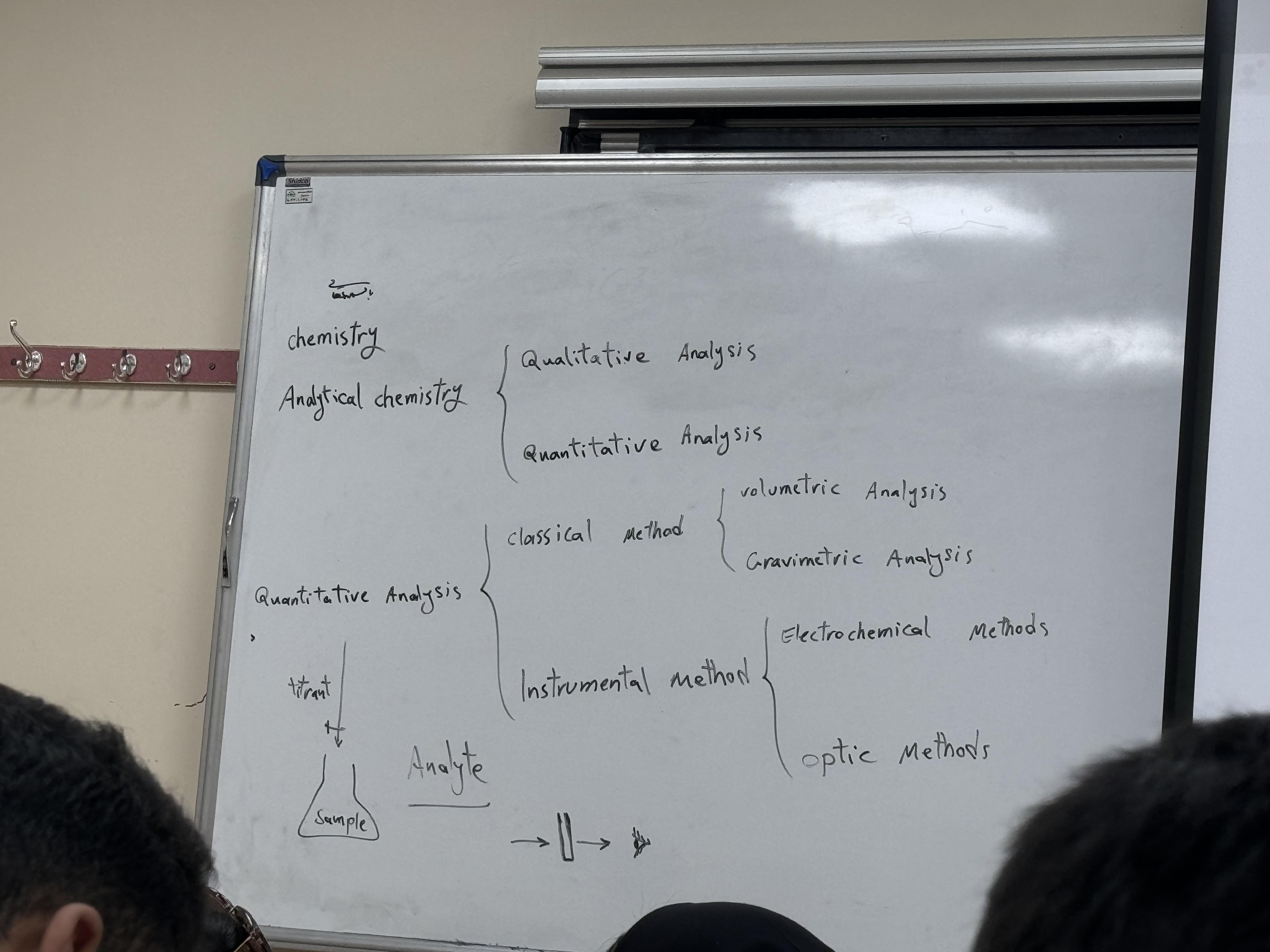Understanding Analytical Chemistry and Its Methods
Notes on Analytical Chemistry

Overview of Analytical Chemistry
- Analytical Chemistry: A branch of chemistry focused on the qualitative and quantitative analysis of substances. Understanding this discipline is crucial for various applications in fields like pharmaceuticals, environmental science, and forensic science.
Types of Chemical Analysis
-
Qualitative Analysis:
- Definition: Determines the presence of certain elements or compounds in a sample.
- Thoughts: This type of analysis answers the question of "what is in the sample?" rather than how much of it is present. It's essential for identifying unknown substances.
-
Quantitative Analysis:
- Definition: Measures the amount of specific elements or compounds in a sample.
- Thoughts: Quantitative analysis is critical for applications that require precise measurements, such as dosage formulations in medicine or pollutant levels in environmental studies.
Methods of Quantitative Analysis
-
Classical Methods:
- Volumetric Analysis: Involves measuring the volume of a solution needed to react with the analyte.
- Thoughts: This is a common method for determining concentration levels, useful in titration processes.
- Gravimetric Analysis: Involves measuring the mass of an analyte or a compound derived from it.
- Thoughts: Very accurate and often used when high precision is required.
- Volumetric Analysis: Involves measuring the volume of a solution needed to react with the analyte.
-
Instrumental Methods:
- Electrochemical Methods: Techniques that measure the electrical properties of a substance to determine its concentration.
- Thoughts: These methods can be very sensitive and are widely used in various applications, including blood analysis.
- Optical Methods: Utilizes light interaction with substances to perform analysis (e.g., spectroscopy).
- Thoughts: These methods offer non-destructive analysis and can be very detailed in terms of identifying molecular structures.
- Electrochemical Methods: Techniques that measure the electrical properties of a substance to determine its concentration.
Visual Representation
- Diagram notes illustrate the branching of analytical chemistry into various analysis types and methods, emphasizing the interconnectedness of qualitative and quantitative methods.
Conclusion
Understanding analytical chemistry and its methods is essential for anyone looking to pursue a career in science-related fields, as it lays the groundwork for research, analysis, and practical applications in chemistry.
Reference:
en.wikipedia.org
Analytical chemistry - Wikipedia
www.britannica.com
Classical Methods - Chemical analysis - Britannica
chem.libretexts.org
1.1: Classification of Analytical Methods - Chemistry LibreTexts